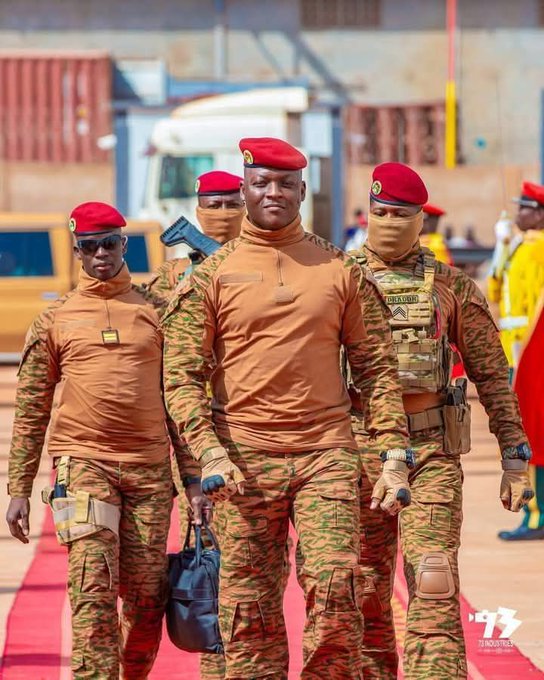Burkina Faso is undeniably facing a critical moment in its history. President Ibrahim Traoré has narrowly escaped a second assassination attempt, further intensifying the political instability that has gripped the country since 2022.
The attack, which targeted the president’s convoy in the capital city of Ouagadougou, has raised significant concerns over the future of the country, as well as questions about the government’s ability to manage the ongoing crisis in the Sahel region.
Burkina Faso has been experiencing unprecedented political instability, which has been exacerbated by the growing presence of extremist groups such as al-Qaeda and the Islamic State.
These groups have carried out increasingly violent attacks across the region, with Burkina Faso becoming one of the hardest-hit nations. President Ibrahim Traoré, who came to power after a military coup in September 2022, has found himself at the center of this chaos.
Despite taking a firm stance against extremism, the security situation continues to worsen, and the country is struggling to contain the violence.
The security crisis in Burkina Faso has escalated to alarming levels. Thousands of civilians have been killed, and more than 2 million people have been displaced by the violence.
Despite the government’s efforts to restore order, terrorist attacks continue to ravage the country, particularly in the northern and eastern regions, where extremist groups have entrenched their control.
United Nations reports indicate that more than 800 civilians were killed in 2023 alone, highlighting the devastating impact of the insurgency.
In addition to the assassination attempt, the persistent violence has left the country in a state of chaos, with communities facing regular attacks by armed insurgents.
These groups continue to target both military personnel and civilians, spreading fear and uncertainty across the nation.
As the violence continues to escalate, the country’s ability to maintain control over its territory is becoming increasingly uncertain.
President Ibrahim Traoré has positioned himself as a leader committed to restoring peace to Burkina Faso, but his leadership has faced growing criticism.
Many argue that his government has become increasingly authoritarian, and despite his promises, the security situation has only worsened.
Balancing power between military factions and political groups within the country has proven difficult, and the government’s inability to effectively address the root causes of the crisis has led to growing frustration among both the population and political elites.
A significant aspect of the crisis is Burkina Faso’s geopolitical shift. In 2023, France, which had maintained a military presence in the country, withdrew its forces after growing anti-French sentiment.
In response, Burkina Faso has sought to strengthen ties with Russia, turning to Moscow for military support in the fight against extremist groups.
This pivot away from its former colonial power has added another layer of complexity to the political and security situation in the country and raised concerns about the future direction of Burkina Faso’s foreign policy.
As Burkina Faso faces these challenges, the humanitarian crisis continues to worsen.
With millions of displaced people, the country is struggling to provide basic services such as healthcare, food, and education.
Refugee camps are overcrowded, and the lack of resources has made it increasingly difficult to meet the needs of the population. International aid organizations are working to provide support, but the scale of the crisis is overwhelming.
The growing instability in Burkina Faso is not only a national issue but also a regional one. The Sahel region as a whole is facing similar challenges, with countries like Mali and Niger also grappling with the rise of extremism and political instability. If Burkina Faso’s situation continues to deteriorate, it could become a breeding ground for further violence and instability, with far-reaching consequences for the entire region.
As President Traoré survives his second assassination attempt, the future of Burkina Faso remains uncertain. The country faces a critical moment in its history, where the ability of the government to navigate the complex political, security, and humanitarian challenges will determine its future. Despite his survival, the situation in the country continues to evolve, and unless comprehensive political reforms and a robust security strategy are implemented, Burkina Faso’s instability is likely to persist.
The international community must remain vigilant and responsive to the situation in Burkina Faso, as the country’s turmoil threatens not only its own future but also the stability of the wider Sahel region.
The path forward will be fraught with obstacles, and the coming months will be pivotal in determining the fate of Burkina Faso and its people.


